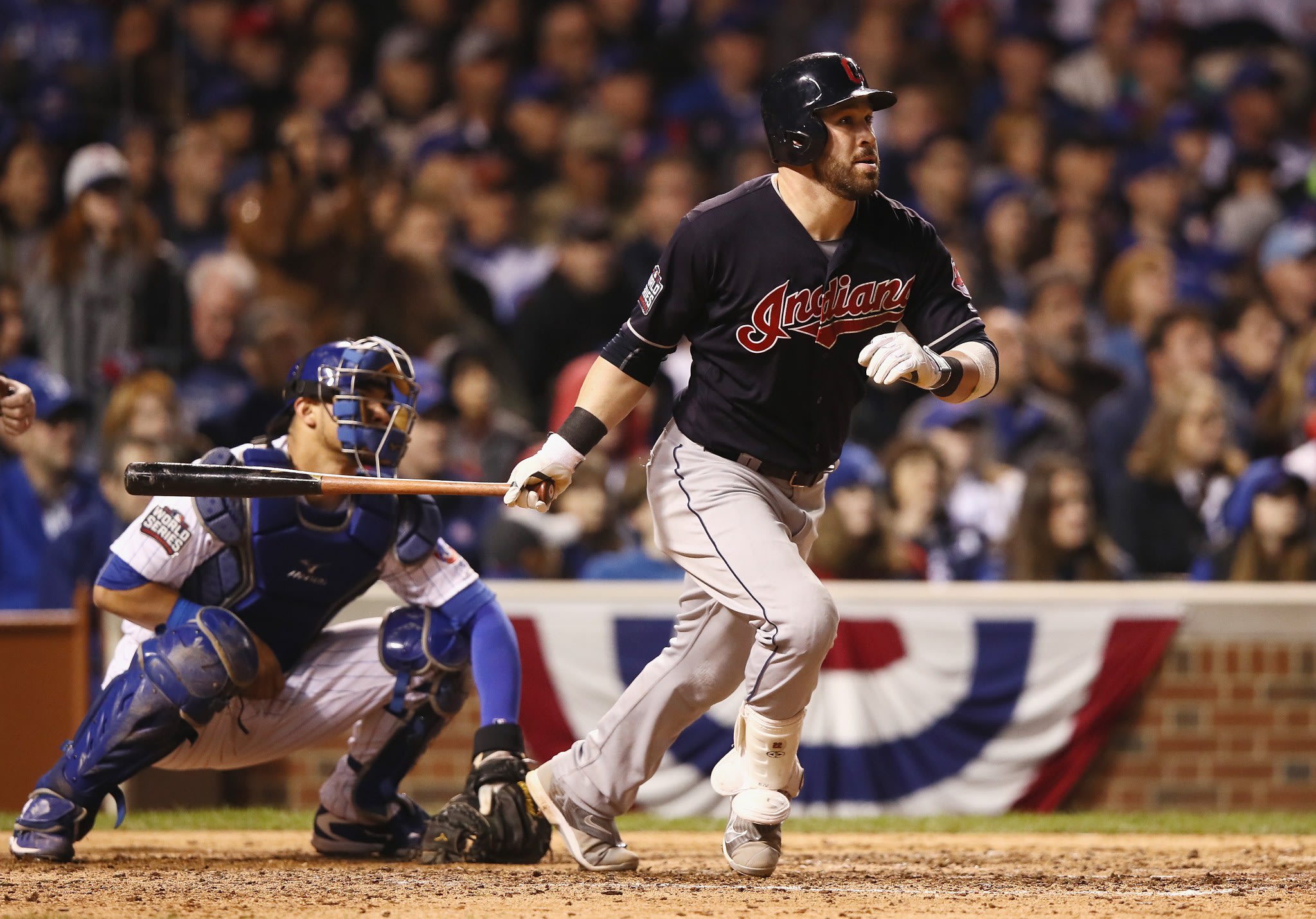Corey Kluber #28 of the Cleveland Indians pitches in the first inning against the Chicago Cubs in Game Four of the 2016 World Series at Wrigley Field on October 29, 2016 in Chicago, Illinois.
|
They lose hard here. They do it with a tilted head, a hand propping it up, a melancholy groan and a long, sad tuck of beer. Excitement, emotion – all of that is well and good, but when it comes to the Chicago Cubs, or any team for that matter, it is not enough. Paying thousands of dollars for a seat does not allow fans to cause; they react, and on Saturday night, their feedback was a simulacrum of what was happening on Wrigley Field below.
The Cubs were losing hard, too, in this pivotal Game 4 of the World Series. They lost 7-2 to a Cleveland Indians team that already had taken two of the first three games, and they lost with the knowledge that only five teams in history had come back from three-games-to-one deficits, and they lost knowing, too, that the last team to do so was the 1985 Kansas City Royals.
And with all that said, by the way: How about these Indians? This organization with a 68-year title drought itself? This team with a fused-together pitching staff anchored by one starter (Corey Kluber) and two relievers (Andrew Miller and Cody Allen) who had thrown half the Indians’ postseason innings going into Game 4 and managed eight of the nine on Saturday? How about Terry Francona, manager deluxe, convincing this team with an eight-figure payroll – so gauche – that it could trundle into Wrigley and lift its leg all over the first two World Series games here in 71 years?
Before Game 4, Francona mused: “I don’t know that we’ve peaked. I mean, we haven’t swung the bats very well the last couple of weeks. I think that it shows what type of team we can be, though.” And it’s almost like he was a modern-day Serrano, his incantations to Jobu calling for – and getting – an answer. The Indians punished the Cubs for nine hits, chasing starter John Lackey after five innings and pouring it on against a Chicago bullpen unable to stanch the wound.
 |
Jason Kipnis’ three-run home run in the seventh inning helped lift the Indians to a 3-1 lead in the World Series. (Getty)
|
Meanwhile, Kluber did what Kluber does, on three days’ rest no less: six innings, five hits, one run, one walk and six strikeouts. His ball wasn’t its heavy self. It mattered not, with the Cubs waving and whacking at pitches with atypically undisciplined swings. Perhaps this was strategy, with Miller in the offing, though it wasn’t particularly effective, and it left the Indians in the catbird’s seat.
With teams since the league championship series 14-0 when scoring first, things looked up for the Cubs when they tagged Kluber with a first-inning run. Cleveland answered with a Carlos Santana solo home run in the second, tacked on a run with Kluber’s infield single to drive one in and plated one more with a Francisco Lindor RBI single in the third. Another run in the sixth gave Kluber a three-run lead, and after 81 pitches he was done, ready to go on short rest again should the Cubs force a Game 7.
Their fight wasn’t exactly gone. Just their effectiveness. Before Miller came on, Indians second baseman and Chicago native Jason Kipnis plastered a three-run home run to right field, staking Cleveland a 7-1 lead. Dexter Fowler actually proved Miller human, with a solo home run in the eighth accounting for the first run scored off him this postseason, but that was the lot of the Cubs’ comeback, and the crowd of 41,706 left with the same sour feeling of the night before.
Cleveland, in the meantime, was a step closer. The city understands no 3-1 lead is safe. It saw the Cavaliers evaporate Golden State’s en route to the city’s first championship in more than 50 years. And just as people in Chicago are rolling their eyes and lamenting how this is so Cubbies, Clevelanders know to put nothing past the Indians, either.
These are nervous days in late October, the sort that gray hairs and frazzle nerves. They know only one way to lose here, and it ain’t easy.
No comments:
Post a Comment